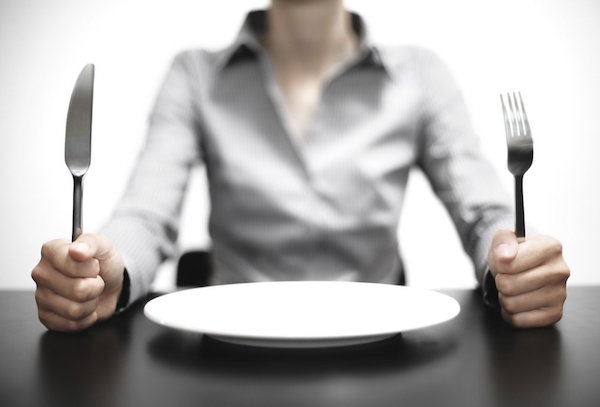A question that seems to pop up time and time again is if you’re feeling hungry right before bed, do you eat or ignore it and go to sleep anyway?
Many stances argue for either side, but we’ll show you what can go wrong if you decide to ignore your body and go to bed hungry.
Less Sleep
If you’re hungry, then it will always be on your mind making it hard to fall asleep, and you’ll be tossing and turning for hours.
Lack of sleep then opens you up to a whole host of other issues and potential problems including a lowered metabolism, increased appetite and weakened immune system.
Even if you do get to sleep, it may not be a deep sleep cycle which is an essential part of sleep where your body can do its much need repairs and rest.
A lack of deep sleep is the reason why you may have nights when you feel you slept right through, but you still feel tired in the morning.
This tiredness will harm the rest of your day whether this is at work or even how you interact with other people.

Affect Mood
Functioning on an empty stomach is hard for most of us and lowers our mood and generally makes us grumpy. This is especially the case if you also decide to skip breakfast, so by lunchtime, you’ll be on the warpath.
Serotonin is a behaviour regulating hormone and is often referred to as a happy chemical and helps to control mood. Serotonin can also be affected by how often we eat.
This has been scientifically backed by the University of Cambridge who found that Serotonin levels fluctuated when food isn’t eaten. It then affects certain parts of the brain that are responsible for controlling anger.
Gain Weight
The feeling of your belly grumbling can keep your brain alert so it can be difficult to relax and fall asleep fully.
Being hungry then has a knock on effect because not being able to sleep leads to your metabolism falling which then triggers the hormone Ghrelin to increase. Ghrelin is responsible for giving you the feeling of being hungry which can lead to weight gain.
A study was conducted with 14 normal weight male subjects during a regular 24-h sleep-wake cycle (including eight hours of nocturnal sleep) and a 24-h period of continuous wakefulness. The results gained proved that nocturnal wakefulness increased morning plasma Ghrelin concentrations in men.
Not eating for long periods can often lead to overeating when it does come time to eat which then results in unwanted weight gain.
These food choices are often unhealthy and provide little nutritional benefit. It’s just easier to make poorer food decisions when we’re extremely hungry.
Having an overly full stomach before going to bed can cause insulin and blood sugar levels to spike which can lead to weight gain in some people.
Lose Muscle
If you’re a gym buff, then you need to take note that going to bed hungry can affect the rate at which you build muscle and in some cases can make you lose muscle mass.
Studies have been conducted that show that going to sleep on an empty stomach can decrease the protein synthesis which is the rate that the body converts protein into muscle.
If your body is not supplied with nutrients for long enough, then the body can begin to use muscle as an energy source which is often referred to as a catabolic state.
This is the reason that rest is such a large part of getting in shape because your body needs adequate rest and nutrients.
If you’re aiming to build muscle, then a slow releasing protein such as Casein is ideal to consume before bed because it means your body has a constant food source to graze on throughout the night. Don’t put all that hard work in the gym to waste by not eating and sleeping right.
Less Energy
Even though you’re asleep, you shouldn’t forget that your body is still running and it requires nutrients 24 hours day to keep it running effectively. While this doesn’t mean that you need to graze non stop it does mean that you need to supply your body with fuel at regular intervals.
When you’re asleep your body is repairing and rejuvenating itself which requires energy, so without a food energy reserve, then you may even wake in the morning and still be tired.
You don’t need to eat a large meal before bed, and even a small snack that is rich in fibre, or protein will leave you feeling satisfied and also energised in the morning.
The Florida State University Department of Nutrition conducted a study that revealed that those who ate a light snack before bed had improved levels of energy and a higher metabolic rate compared to those that ate nothing.
So What’s The Solution?
The solution to avoid these issues is that if you feel hungry at night don’t hesitate to eat.
The longer you leave it, the more you worry that you’ve left it too late, but this doesn’t mean you need to eat a large feast to feel satisfied. Going to bed with on a full stomach can feel just as uncomfortable as an empty stomach.
If you’re just about to go to bed, then a light snack will be enough to keep your body going until the morning.
The best foods in this situation are protein-rich foods such as lean meats, nuts, protein-dense vegetables and healthy fats like avocado which will keep your metabolism ticking over.
We know that there are added pressures and responsibilities in our day to day lives, but ideally, you should completely avoid putting yourself in this position, to begin with.
To do this, you need to focus on your food choices throughout the day where you need to avoid skipping meals which then trigger your hunger at night.

